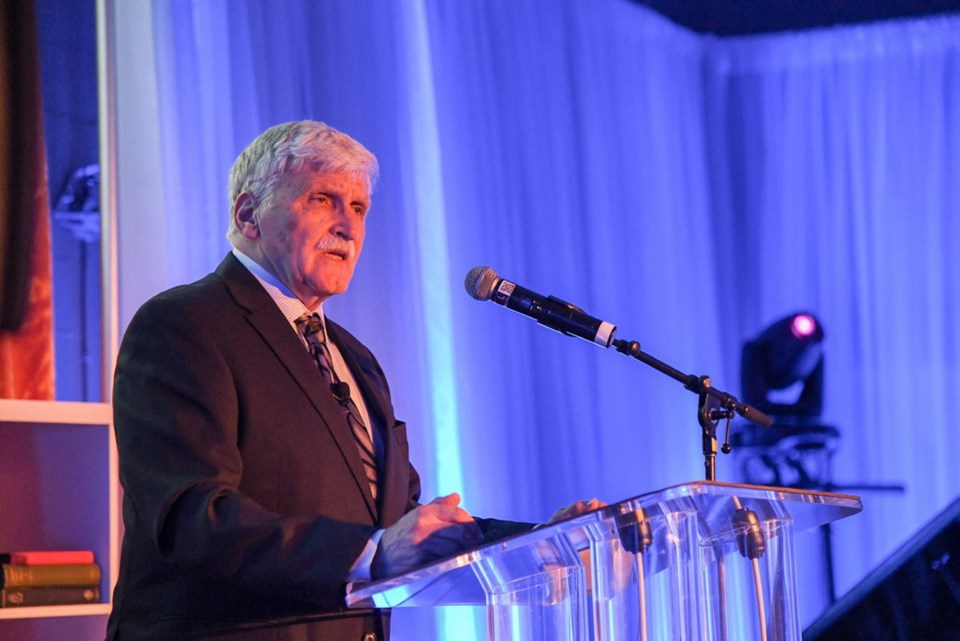Future peace will be made possible by the young, those most qualified to bring the internet to maturity, retired lieutenant-general and former senator Roméo Dallaire told a Victoria audience.
Accepting a new humanities award from the University of Victoria, Dallaire said young people, already comfortable with worldwide communication, will use it to create a new human solidarity.
“That generation, the under 25s, the ones I call ‘the generation without borders’ are already global,” Dallaire said. “They are grasping what human rights really mean.”
Dallaire was speaking on Friday at the first awarding of the University of Victoria’s Humanitas Awards.
Every two years, recipients will be selected as those who best personify the goals of the UVic humanities faculty — enriching human dignity, promoting critical inquiry, engaging myriad voices and provoking innovative expression.
Named as Historic Humanist was American science fiction and fantasy writer Ursula K. Le Guin, who died last year at 88.
UVic 2009 graduate Ashli Akins was honoured as Emerging Humanist.
Akins founded the nonprofit Mosqoy, which works with Indigenous Quechua people of Peru, supporting education and promoting fair trade of the artisanal goods of a women’s co-operative.
Dallaire, a 35-year veteran of the Canadian Army, was honoured as this cycle’s Public Humanist.
He is best known for his role as commander of a 450-man United Nations peacekeeping force during the 1994 genocide in Rwanda. Dallaire pleaded for help, but was ignored. About 800,000 people were killed, many with machetes.
Dallaire subsequently suffered a breakdown and still deals with post-traumatic stress disorder.
He told the UVic audience that the ultimate responsibility for the Rwandan genocide should be laid at the feet of all the world’s people.
“Every country in the world that had any possibility of providing any support did not and decided not to,” Dallaire said. “They must be held accountable for that failure of humanity.
“It only stopped when other Rwandans were finally able to muster enough resources to stop the war. It didn’t stop because of the international community, who just watched and watched and abandoned us in the field and abandoned Rwanda.”
Dallaire expressed bitterness over the difference in the United Nations response to stop fighting in the former Yugoslavia with the lack of action in Rwanda.
“What made them decide differently?” he asked.
“What criteria were used by the politicians and the people who advised them and the people who elected them and the societies that supported them?”
Dallaire noted that, even now, Syria has become a nightmare and Iraq was smashed.
But he saw cause for optimism as young people seize new communication to understand, comprehend and respect their peers all over the world.
The adult generation is struggling with the internet and even using it to foster division. But younger people are using it to talk, discuss and learn the equality and worth of all people.
“That revolution in communication is still maturing and we are still trying to grapple with it,” he said. “But 11-year-olds are already communicating with the world.
“They are going to have peers around the world. They are going to finally coalesce with all humanity because they will talk to them and see them.”



